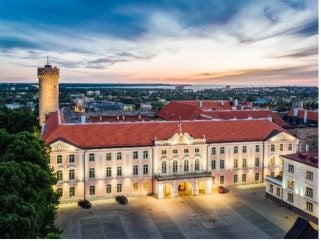
Estonia’s parliament (Riigikogu) has adopted a resolution (431 OE), supporting the adoption of nuclear energy in Estonia. Under the resolution, the Nuclear Energy & Safety Act will be drafted and existing legislation will be updated if needed. An institution regulating the safe use of nuclear energy and the development of sectoral competencies will also be set up. The draft resolution, “Supporting the adoption of nuclear energy in Estonia” was submitted by 55 members of the Riigikogu. Forty-one members of the Riigikogu voted in favour, 25 voted against with two abstentions.
According to the bill, the Riigikogu will make a fundamental decision whether to allow the production of nuclear energy in Estonia. The bill is based on analysis undertaken by the nuclear energy working group in 2021-2023, which concluded that the introduction of nuclear energy in Estonia is feasible.
A National Development Plan for the Energy Sector to 2035 must address the impacts of the adoption of nuclear energy in order to ensure security of energy supply during the transition to climate-neutral energy production. The regulatory framework must address the risks related to national security, financing and form of ownership.
An explanatory memorandum says the adoption of nuclear energy in Estonia would have several advantages. It would provide capacity that would balance the fluctuations in renewable energy generation; help Estonia achieve its climate neutrality target; ensure a stable and affordable electricity price in the long term; promote research and development; bring economic benefits; and create jobs for local people.
An IAEA mission in October 2023 said Estonia had developed a comprehensive assessment of its nuclear power infrastructure needs to decide whether to launch a nuclear power programme. In February 2023, Estonia’s Fermi Energia selected GE Hitachi Nuclear Energy’s BWRX-300 SMR for potential deployment by the early 2030s.






